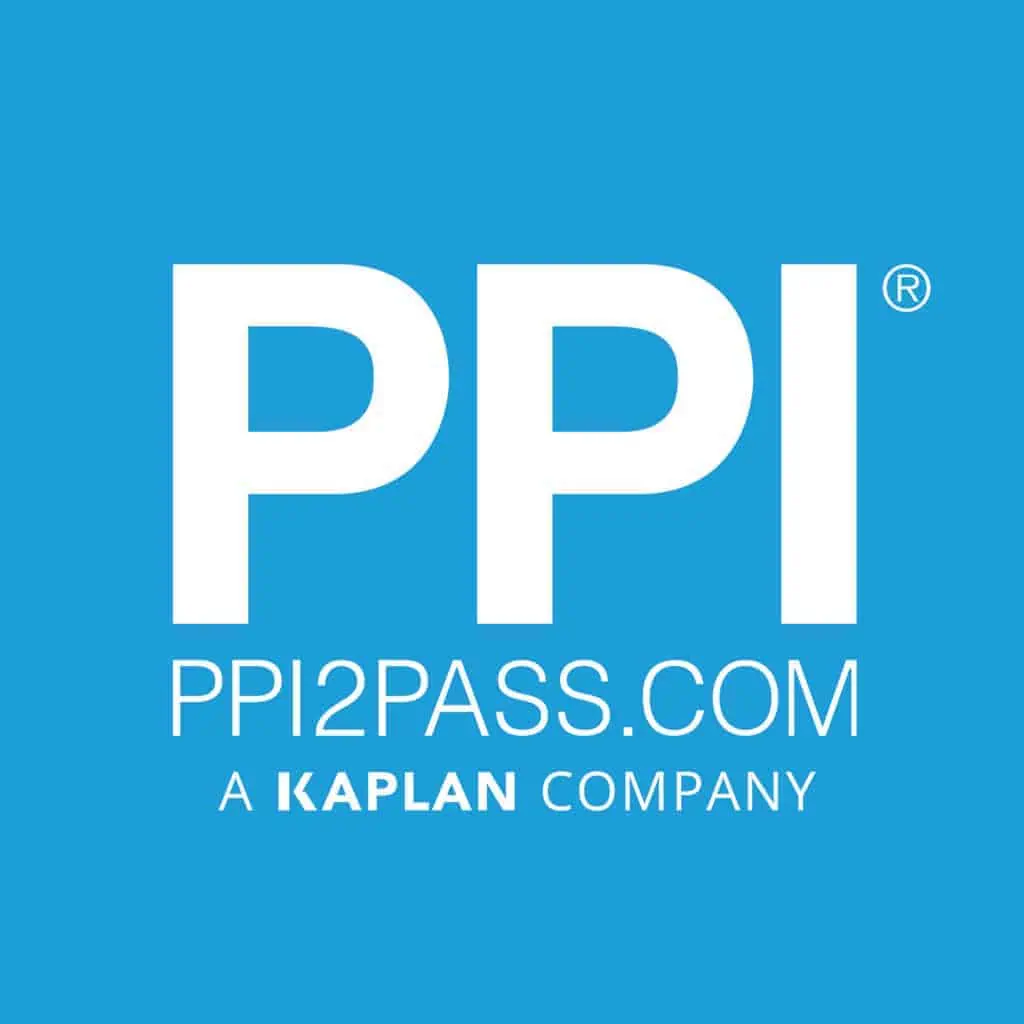In the previous article, I talked about one of the five depth areas of the Civil PE Exam, Geotechnical, and in this article (and video above), I review, in detail, the construction depth portion of the Civil PE Exam to help you decide if this might be the right option for you.
The Five Different Areas That You Can Choose From When Taking the PE Civil Exam Are:
- PE Civil: Geotechnical
- PE Civil: Construction
- PE Civil: Structural
- PE Civil: Transportation
- PE Civil: Water Resources & Environmental
Remember that the PE Civil exam is a breadth and depth examination. The breadth items (typically known as the morning section) cover topics from all areas of civil engineering. However, the depth items (also known as the afternoon section) focus more closely on a single area of practice, like construction engineering
What Is Construction Engineering?
A construction engineer is concerned with the management of engineering projects including planning and control of cost, time, and quality. This field is a multi-discipline area, which demands knowledge about business, economy, computer applications, constructability, construction equipment and methods, decision and risk analysis, engineering management, law, safety, and productivity.
Here Are a Few Things to Note About the Civil–Construction CBT Exam:
- The exam is computer-based. It is a closed book with electronic references. The NCEES PE Civil Reference Handbook is included in the exam along with the design standards.
- Examinees have 9 hours to complete the exam, which contains 80 questions. The 9-hour time includes a tutorial and an optional scheduled break.
- The exam uses both the International System of Units (SI) and the U.S. Customary System (U-S-C-S).
- The exam is developed with questions that require a variety of approaches and methodologies, including design, analysis, and application.
This Is What You Can Expect to Be Tested on in the Exam:
- Project Planning, such as Quantity take-off methods, Cost estimating, and project schedules.
- Means and Methods, such as Construction loads, Construction methods, and Temporary structures and facilities.
- Soil Mechanics, such as Lateral earth pressure, Soil consolidation C. Effective and total stresses.
- Structural Mechanics, such as Dead and live loads, Trusses, Bending (e.g., moments and stresses), and Shear.
- Hydraulics and Hydrology, such as Open-channel flow, and Stormwater collection and drainage.
- Geometrics, such as basic circular curve elements (for example, middle ordinate, length, chord, radius) and Basic vertical curve elements.
- Materials, such as soil classification and boring log interpretation, Soil properties (for example, strength, permeability, compressibility, phase relationships), and Concrete (for example, non-reinforced, reinforced)
- Site Development, such as Excavation and embankment (for example, cut and fill), Construction site layout and control, and Temporary and permanent soil erosion and sediment control.
- Earthwork Construction and Layout, such as excavation and embankment (for example, cut and fill), Borrow pit volumes, and Site layout and control.
- Estimating Quantities and Costs, such as Quantity take-off methods, Cost estimating, and Cost analysis for resource selection.
- Construction Operations and Methods, such as Lifting and rigging, Crane stability, Dewatering and pumping, and Equipment operations (for example, selection, production, economics).
- Scheduling, such as construction sequencing, activity time analysis, and time-cost trade-off.
- Material Quality Control and Production, such as Material properties and testing (for example, soils, concrete, asphalt), Weld and bolt installation, and Quality control process (QA/QC).
- Temporary Structures, such as Construction loads, codes, and standards, Formwork, Falsework and scaffolding, and Shoring and re-shoring.
- Health and Safety, such as OSHA regulations and hazard identification/abatement, Safety management and statistics, and work zone and public safety.
Here Are the Pass Rates for the Civil Geotechnical CBT Exam:
As of December 2021 the PE Civil: Construction depth has a 53% pass rate for first-time takers and 37% pass rate for repeat takers. You can view the full list of pass rates here.
Let’s compare them to the PE Civil: Geotechnical that we discussed in the previous article had a 54% pass rate for first-time takers and a 30% pass rate for repeat takers.
Hopefully, this information will give you a better idea of what to expect in The Civil Construction CBT Exam. Remember to consider your experience and interests and to check the passing rates when deciding what depth section to take for your PE Exam. Lastly, I would strongly recommend also previewing the exam by doing some exam prep courses that offer a variety of live and on-demand classes. Looking at the previews of the practice exams for each discipline might help jog your memory of which areas have questions that are easier to study for. For some great prep courses visit our sponsor PPI today at ppi2pass.com to see all the options available for PE exam prep.
Sources:
College of Engineering Civil Engineering Department
NCEES: PE Civil exam
NCEES PE exam Pass Rates
This Episode Is Brought to You by PPI
PPI
I hope you found this article helpful. In upcoming articles, I will solve some more PE exam practice problems and answer other questions from our subscribers. Pass the PE Exam videos will publish weekly, so be sure to click the subscribe button so you don’t miss something that could make a substantial difference in your exam result.
Lastly, I encourage you to ask questions in the comments of this video, or on this page and I’ll read and respond to them in future videos. So, if there’s a specific topic you want me to cover or answer, we have you covered.
I’ll see you next week… on Pass the PE Exam
Anthony Fasano, P.E.
Engineering Management Institute
Author of Engineer Your Own Success

Leave a Reply